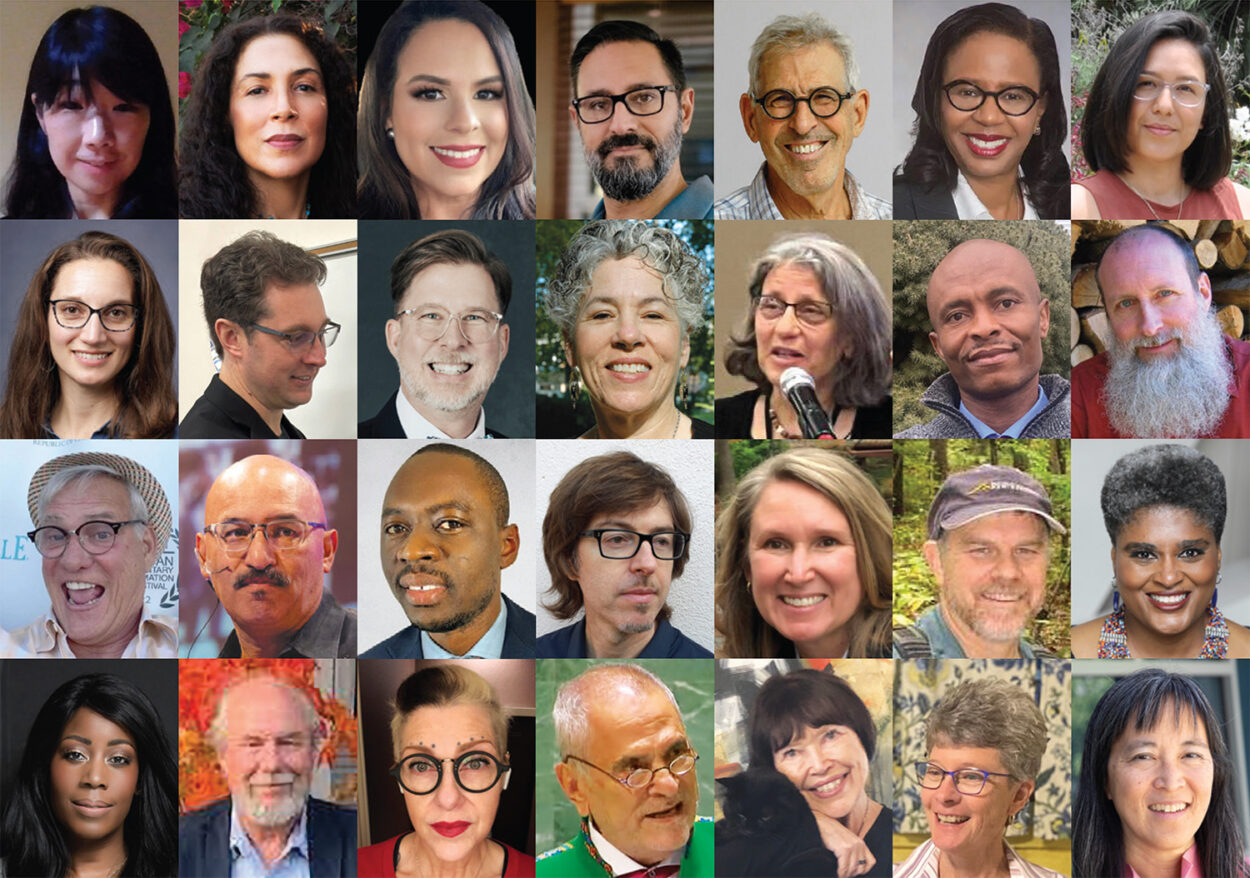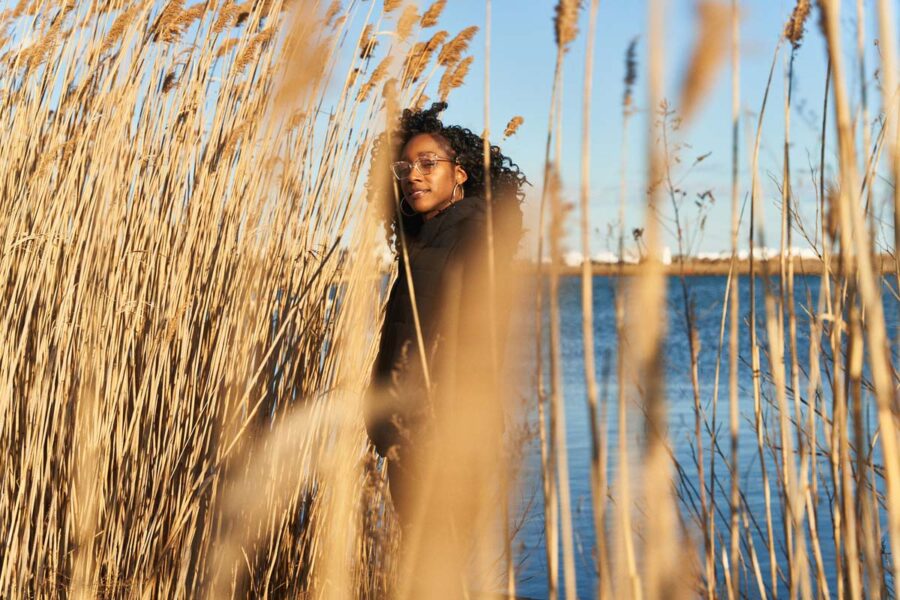In last year’s magazine we looked back for “The History Issue.” Now, as we look to the future, we decided to turn to our most valuable resource: our alumni, students, faculty, staff, and board members. We asked a wide range of Antiochians how they see our university and wider Antioch community addressing the challenges and opportunities of the years and decades to come. Read how their answers for inspiration, vision—and wisdom.
Mary Ann Short
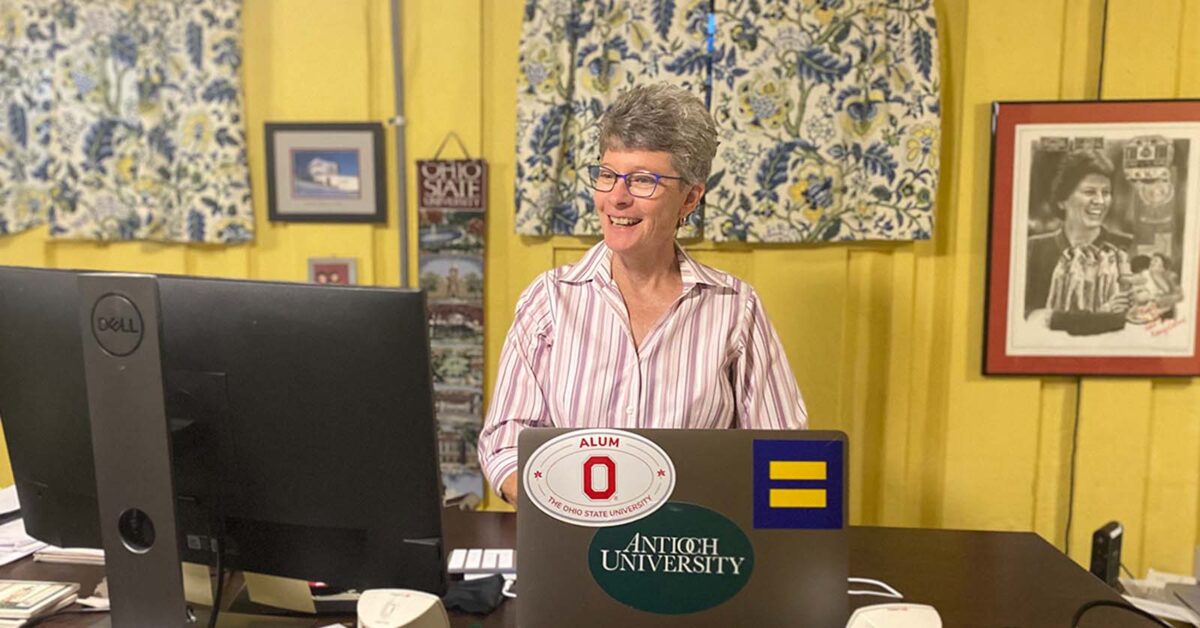
Antioch University is uniquely positioned to prepare socially conscious leaders who are concerned about more than just themselves. Our alumni provide leadership close to home and around the world, they create healthy communities and workplaces, and they pursue a sense of shared purpose in service to a greater good. They are unafraid and unashamed to tackle hard challenges and to pursue noble outcomes that serve people and the planet, not just profit.
Mary Ann Short is the Associate Dean of Distance and Extended Education, and she helped design Antioch’s graduate management degree programs. Read our recent Common Thread profile of Short.
Froswa Booker Drew
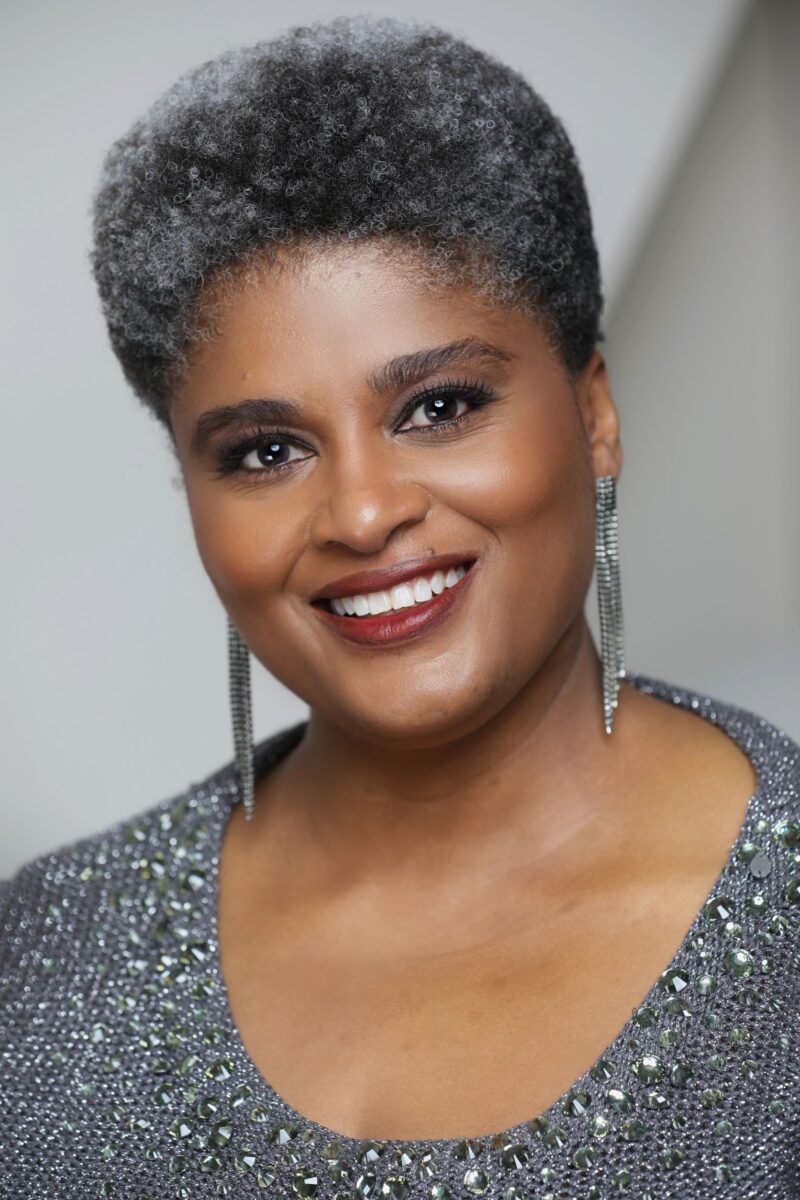
Antioch University’s history and legacy is one of social justice and activism. Antioch is poised to serve as a leader in creating change agents that serve locally, nationally, and across the globe. It is my desire to see Antioch continue this tradition by creating institutes that provide training and mobilization staffed by graduates who share their lived experiences and academic expertise to change the trajectory of our communities for all. I am proud of my Antioch education and experience. It has served as a foundation for my work supporting Black-led nonprofits and working with institutions locally and nationally to provide philanthropic guidance, community engagement strategies, and leadership development. I hope that the seeds I am depositing in others through this work and mentoring will sprout a harvest of changemakers.
Froswa Booker Drew ’14 (GSLC, PhD) is the Founder of the Reconciliation and Restoration Foundation, the owner of Soulstice Consultancy, and is an adjunct professor at Tulane University.
Carole Isom-Barnes
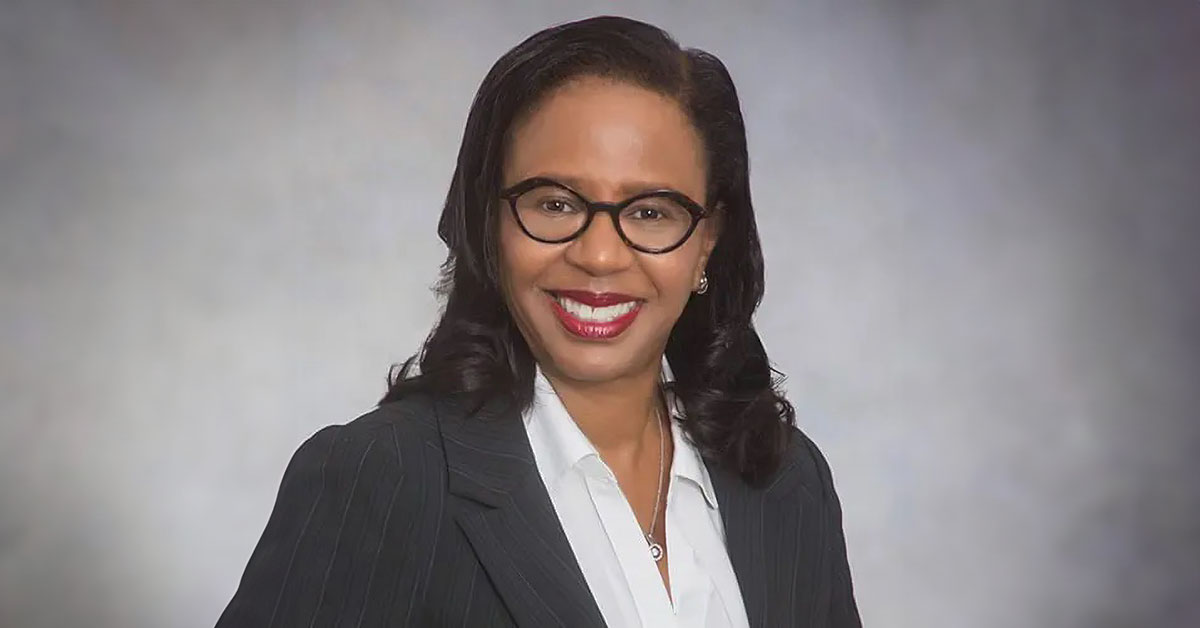
A child wants to see a teacher who cares; a citizen wants to see a politician who cares. The opportunity exists, with the Coalition for the Common Good, for the world to see and associate Antioch University and our alumni as a body that cares for humanity. The world is grappling with some very complex environmental, political, and social issues; the success of our Coalition can build on Antioch’s history in the years and decades to come, identifying us as caring, actionoriented leaders of change. Our history of forward-thinking leaders, beginning with President Horace Mann, brought innovation and social activism to the forefront of higher education. These progressive efforts preceded U.S. gender and race laws that impacted human rights. Our Coalition preserves our historical continuity and collective connection to the University by enabling us to serve as visible change agents, pioneering new efforts. We must enhance our presence and lead in higher education, addressing worldly challenges through forward-thinking education, information, and influence, catalyzing transformative solutions and change.
Carole Isom-Barnes ‘10 (GSLC, PhD in Leadership and Change) is Chair of Antioch University’s Board of Governors. She is the the president of the consulting group Xperience Leadership, LLC and Assistant Professor of Strategic Communication at Queens University in Charlotte, North Carolina.
Roberto Lovato
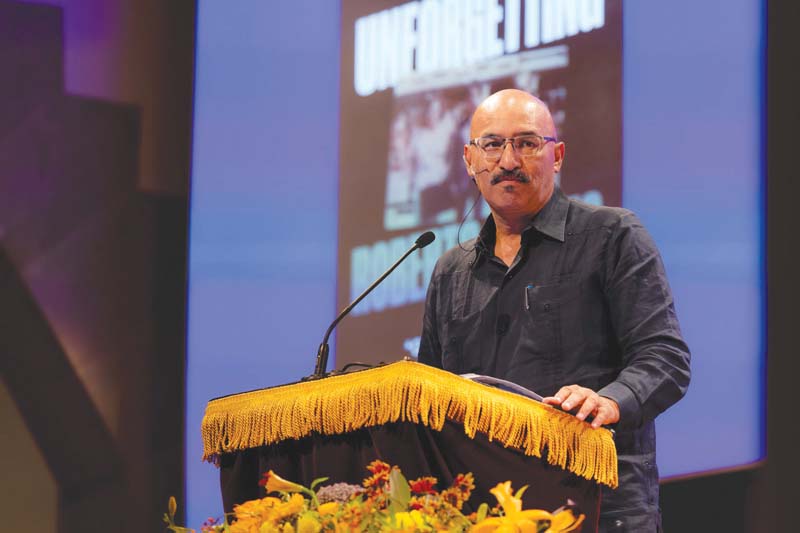
Antioch’s social justice focus provides it with enormous competitive advantages in the world of ideas and actions we’ll all need to prepare for the inevitable crises we are all sure to face. Antioch is built to help us all do our best in a world awash in crisis.
Roberto Lovato ‘18 (Los Angeles, MFA) is a longtime journalist and the author of Unforgetting: A Memoir of Family, Migration, Gangs, and Revolution in the Americas. He is Assistant Professor of Creative Writing at the University of Nevada, Las Vegas.
Daisy Salas
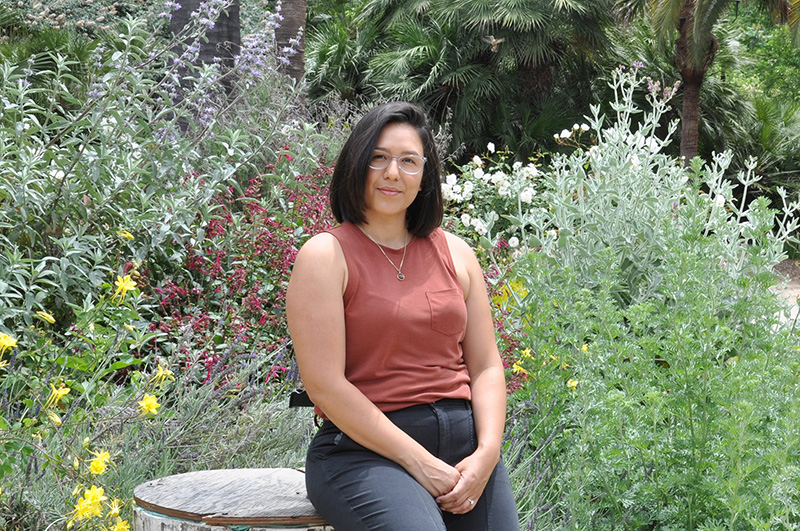
Antioch University is reshaping how students view themselves and the world around them. During my time in the MA in Nonprofit Management, I was reminded to live my values and view every decision through a social justice lens. It can be overwhelming to think of the magnitude of social and environmental challenges that we face, but we don’t have to battle these issues alone. Antioch empowers students to make a difference within their communities. By collaborating with individuals and organizations, together we have the potential to create positive change on a larger scale, ultimately contributing to broader national and global transformations. Antioch’s programs continue to foster a sense of social responsibility, encouraging critical thinking and promoting active engagement in social and environmental issues. By instilling these principles in its students, the university will continue to contribute to a more socially conscious and engaged society, where individuals take action to address pressing challenges and work collaboratively towards a better future.
Daisy Salas ‘22 (MA in Nonprofit Management) is a program coordinator for the MFA in Creative Writing.
MeHee Hyun
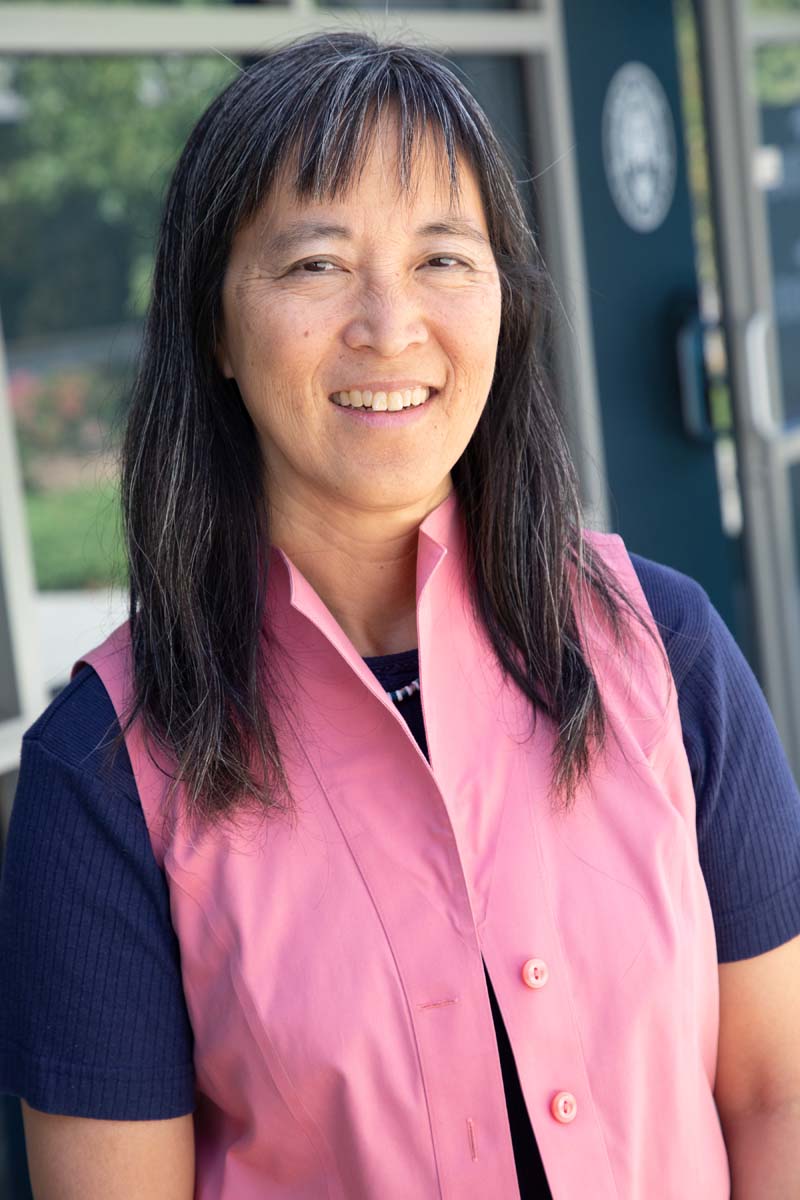
Of Antioch’s many strengths, I believe the most in our sense of community, our commitment to create learning with everyone in the room and build connections that can transcend the immediate. Our students and alums demonstrate this out in the world by making truly amazing contributions to their numerous communities. And right now it feels like we all really need this, both to find community and to make a difference in the places and causes we hold dear. It might sound simplistic, but nurturing community requires not just a steadfast eye on the common good, but deep and continuous examination of our role in this work. I’m proud of how we can nurture this through asking ourselves to do more intentional and intensive listening as well as developing critical and creative thinking that helps us act in ways that are truly synergistic.
MeHee Hyun is Dean of Undergraduate Studies and Chair of the Los Angeles Undergraduate Studies program. She has served in a variety of roles on Antioch’s Los Angeles campus over the last 25 years.
Laurien Alexandre
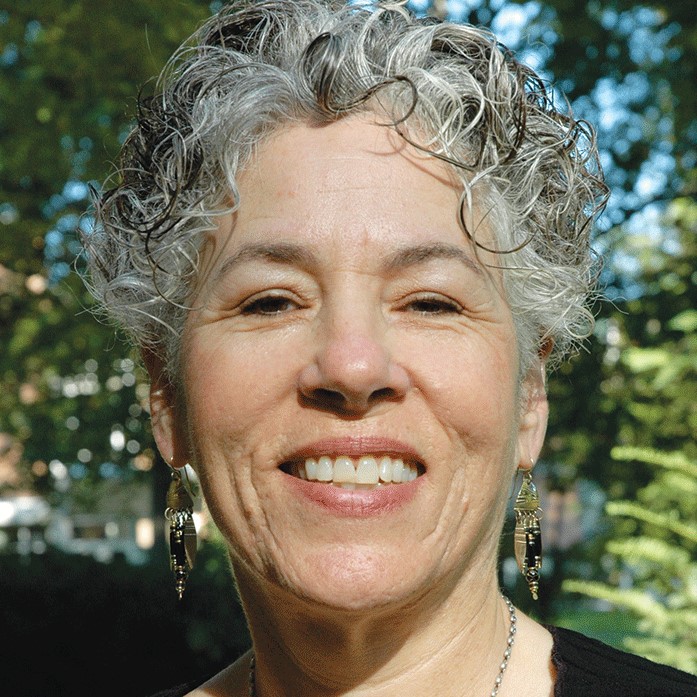
Antioch University has unparalleled strengths at a time when our country and democracy face existential threats. The need to stand boldly against the assaults on critical thinking, the whitewashing of history, and the closing of minds couldn’t be greater. While I have fears for our country, I have no doubt that Antioch will continue to be needed to “win those victories.” As we look ahead, I believe we must continue to increase access and expand impact to fulfill our mission. Finding that strength through collaboration with other like-minded institutions is an important strategy. It is about coming together to find common cause for the common good. We need to educate for inclusive, equitable organizations and environmentally sustainable cities. We need to teach skills in creativity and critical thinking. We need to promote lifelong learning and train professionals for both jobs and justice. Strategies, tactics, and organizational models may change. What remains is our decades-long calling to lead bold, transformative experimentation in higher education.
Laurien Alexandre is the Dean of the Graduate School of Leadership and Change and Senior Coordinator for Internal Communications.
Lance Dublin
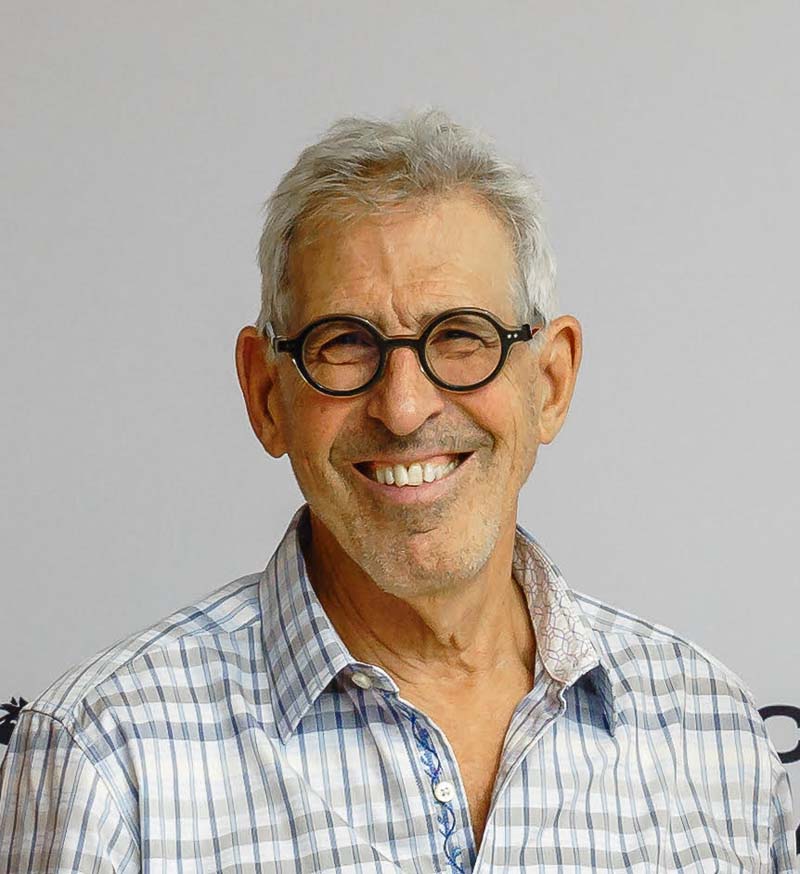
Antioch University can and should play a critical role in not only preparing individuals to address the challenges of the future but in contributing to what that future will be. The University is uniquely positioned for this as long as we maintain our unrelenting commitment to social justice, equal access for traditionally under-served populations, and educational innovation. Equally important to creating this future are Antioch’s alumni. This future will belong to those individuals who stand up and are accountable, to those who are willing to lead and take risks, to those who are pioneers and challengers of the status quo, to those who value reflection and learning, to those who respect diversity and value community, and to those who don’t just want a role in the future but a responsibility for it. And that is who Antiochians are after all.
Lance Dublin ‘73 (College, BA) is a member of Antioch’s Board of Governors. In the 1970’s, while an undergraduate at Antioch College, Dublin helped lead the expansion of Antioch to a national university system, serving as cofounder of Antioch West and opening campuses in San Francisco, Seattle, Los Angeles, Alaska, and beyond. Read our cover story from last year’s magazine about this period of expansion.
José Ramos-Horta

People living in fragile circumstances already feel the effects of climate change most severely. We need a new outlook on the climate and security nexus, which will address the impacts of climate change and environmental degradation on peace and security. And [we need to] ensure that the quest for energy transition does not worsen the security situation in vulnerable and fragile countries… We have the chance of the century to build a new partnership of equals between the super-rich of the North and us in the periphery, with a renewed spirit of mission, around the global causes of nature and human survival. Failing this, we will sink together, rich and poor, the weak and the powerful.
José Ramos-Horta ‘84 (Antioch University, MA in Peace Studies) is the current president of Timor-Leste. He won the Nobel Peace Prize in 1996 and returned to his home country in 1999, after twenty years of exile during the Indonesian occupation. He previously served as Timor-Leste’s second president from 2007-2012. This statement is excerpted from his speech to the UN General Assembly in September. He gave permission for us to excerpt it here. He was the subject of our 2021 cover story.
Treating the Mind
Mariaimeé Gonzalez
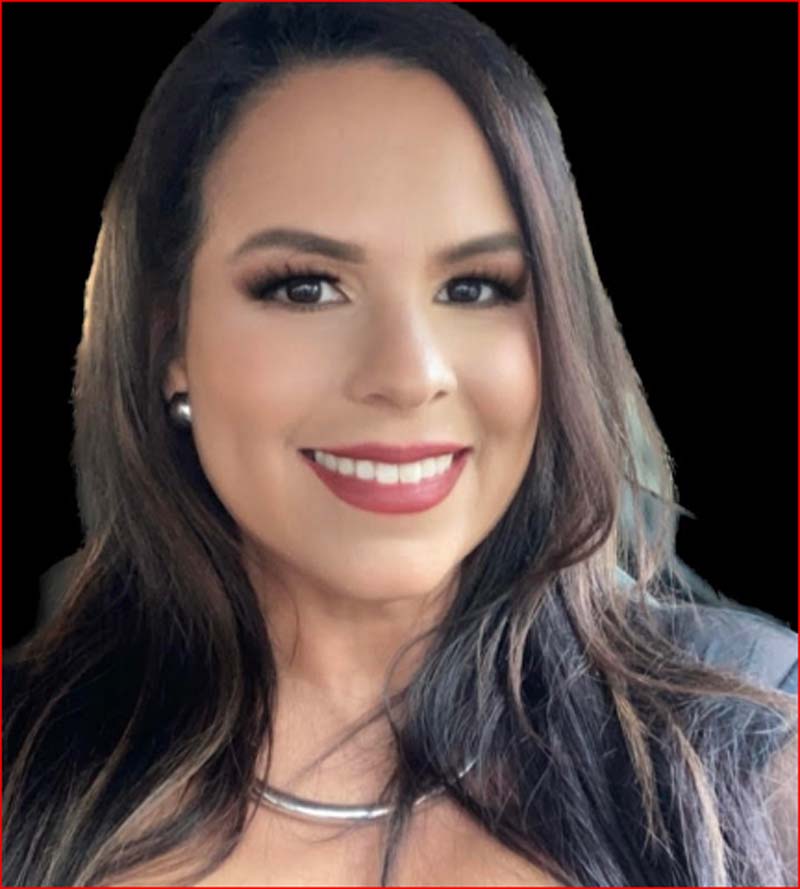
Antioch honors social activism as a core value, and it is the heart of our mission and vision. If history repeats itself, which often it does, then I hope we continue to honor social activism in the coming years and decades. This is how, as fellow Antiochians, we will dismantle the oppressive systems, within Antioch and outside of Antioch, which impact marginalized communities. This is how we will liberate ourselves from oppressive realities and narratives. The power of any community is within the community, so we need more folx from diverse communities to decide what is best for their communities. Our white colleagues need to learn to be disruptors alongside us as we work together to decolonize mental health practices, Westernized curricula, dominant narratives in Western medicine, the capitalist giant of higher education and insurance, and other harmful systems. The ripple outward will be how we explore and honor ways of resistance, healing via cultural practices, and liberation.
Mariaimeé Gonzalez is the program chair for the MA in Counseling on Antioch’s Seattle campus. She coedited Experiential Activities for Teaching Social Justice and Advocacy Competence in Counseling and is currently working on her next book.
Gina Pasquale
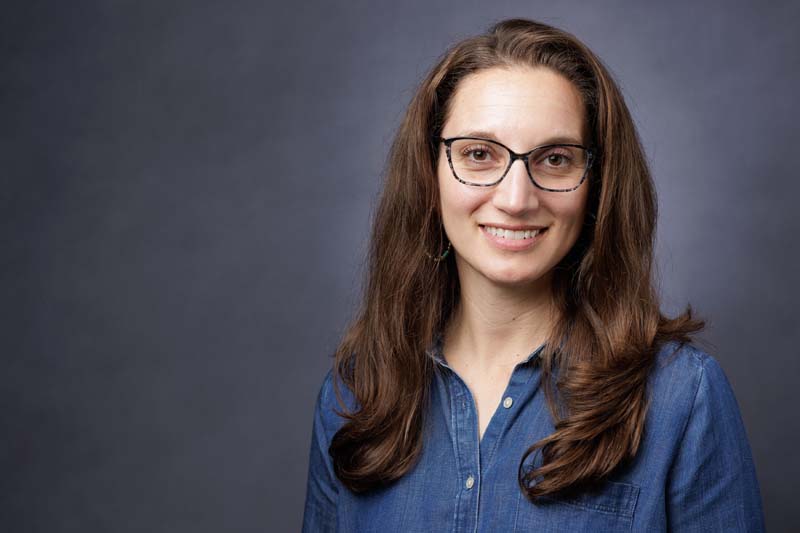
The need for skilled mental health providers has never been higher. As we all navigate this country’s ongoing mental health crisis, Antioch is already playing an important role in finding solutions and paths forward. Antioch Clinical Psychology alumni are working in integrated primary care settings, private practices, non-profit clinics, community mental health centers, educational settings, and many more. Over the coming years and decades, it will be imperative for clinical psychologists to adapt to the ever-changing healthcare landscape and to learn and embrace emerging technologies. However, relationship is the cornerstone of clinical psychology regardless of practice setting. The Antioch emphasis on relationship will train the next generations of psychologists to meet the mental health needs of the individual while also working to build welcoming and connected communities.
Gina Pasquale is affiliate faculty in the Clinical Psychology Department on Antioch’s New England campus and was recently named Executive Director of Maps Counseling Services, a nonprofit mental health center based in Keene, New Hampshire.
Vincent Pignatiello
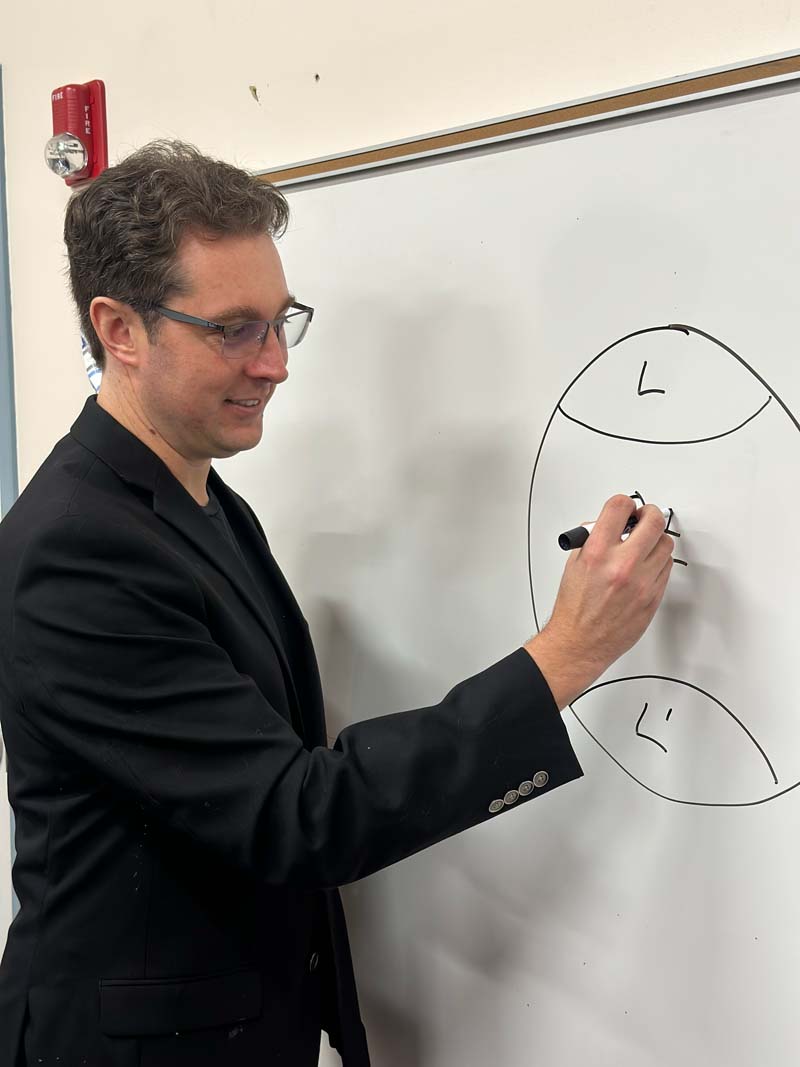
One of the largest challenges that the current mental health system is facing is a limited number of providers and resources for our communities. People need mental health services from providers who are culturally informed. This requires a workforce that can be flexible in serving in multiple roles in mental health. Our PsyD Programs train students in multiple roles for the field and promotes additional emphases in areas like integrated primary care. We hope that students leave the program with a reflective and culturally responsive approach to these various roles as well as with a knowledge that intervention can occur at various systemic levels, including individual, families, groups, organizations, and the culture at large.
Vincent Pignatiello ’13 (New England, PsyD) is Chair of the Department of Clinical Psychology on Antioch’s New England campus.
Jude Bergkamp
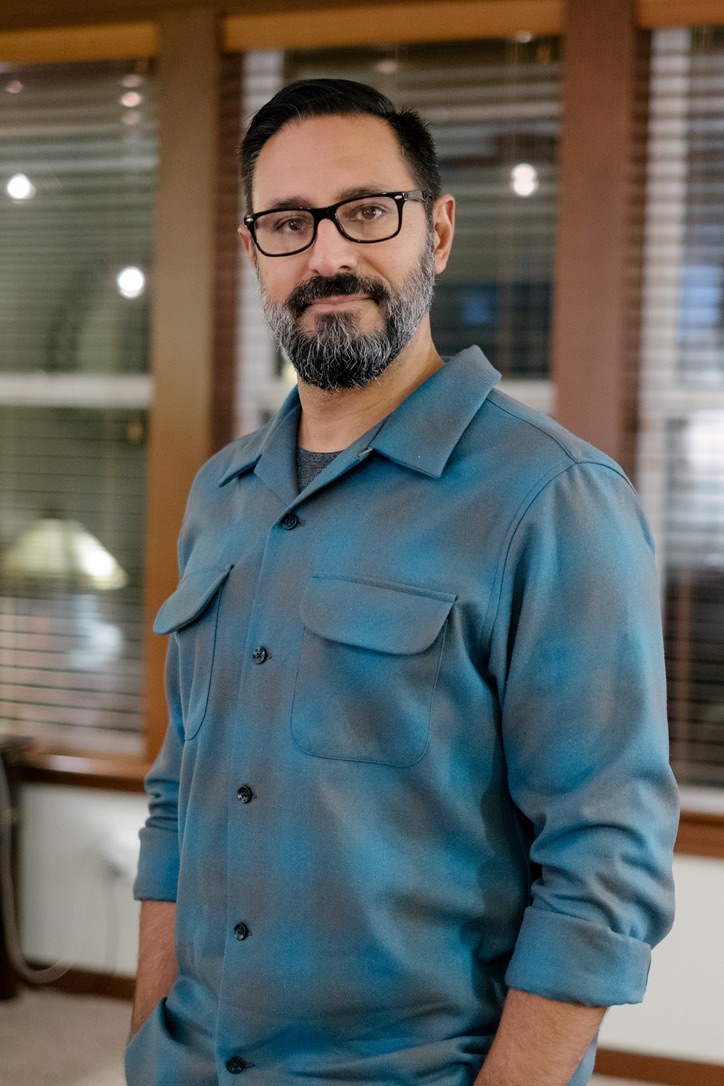
Our mandate from the American Psychological Association is to forge graduates competent in assessment, diagnosis, treatment, research, supervision, consultation, leadership, and administration. Yet, there are no overt calls to integrate social justice into our curriculum. The Seattle PsyD Program is the first in the nation to assert a program-specific competency of social justice, complete with measurable anchors, methods for competency development, assessment of achievement, and proximal and distal outcomes. While there are areas of the medical model and social justice that are not quite congruent, our program is striving to find the balance in order that our graduates can effectively be health service / social justice psychologists: a true vision of the future.
Jude Bergkamp ‘10 (Seattle, PsyD) is core faculty and program chair of the PsyD in Clinical Psychology on Antioch’s Seattle campus and Director of the Decoloniality and Social Privilege Awareness Initiative.
Lorraine Mangione
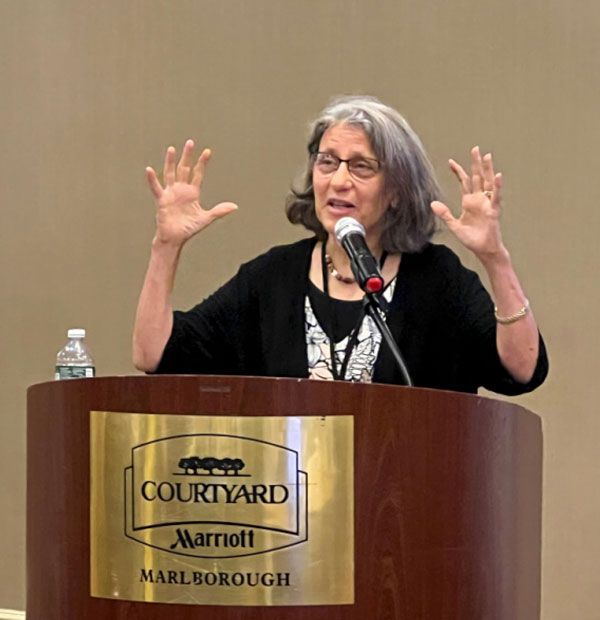
A phrase and a concept that has fueled our doctoral level program from its beginning is “Multiple Roles.” This speaks to the future of psychologists in a world where mental health issues are critical to the functioning and thriving of individuals and society. We need to expand our reach by moving further into advocacy, supervisory, community research, administrative, management, and leadership roles. We need to have a larger, systemic level impact. And we need to find more active and innovative ways to meet those who are underserved and marginalized such as in correctional facilities, schools, refugee and immigration sites, poor neighborhoods, the streets, and community settings.
Lorraine Mangione is Professor and Director of Practica in the Department of Clinical Psychology on Antioch’s New England campus and the coauthor of Mary Climbs In: The Journeys of Bruce Springsteen’s Women Fans.
Environmental Stewardship
Jude Nuru

In the last few years, a lot has happened within the energy transition landscape both in theory and in practice. Scholars have published a lot in this area and practitioners have also built a significant number of energy systems all in an attempt to offset carbon emissions. Even though a successful energy transition requires a multi-faceted approach, efforts to date have often largely been centered around environmental sustainability with little to no attention being paid to social justice and economic empowerment. I would like to see a more holistic approach where the three pillars of the energy triangle—energy security/access, economic development, and environmental sustainability—are simultaneously pursued. Antioch is already playing a significant role on the social justice front. We need to train more students to take up roles in the energy transition as policy advocates or practitioners. By doing so, the Antioch community is helping fill the human resource gap to ensure a successful energy transition.
Jude Nuru ’19, ’20 (MS, PhD in Environmental Studies) is the Director of Solar Initiatives for Low- to Moderate-Income Communities at ReVision Energy, where he is an employee-owner. He recently led the project to install a large solar array in Antioch University’s Glover’s Ledge forest.
Peter Palmiotto
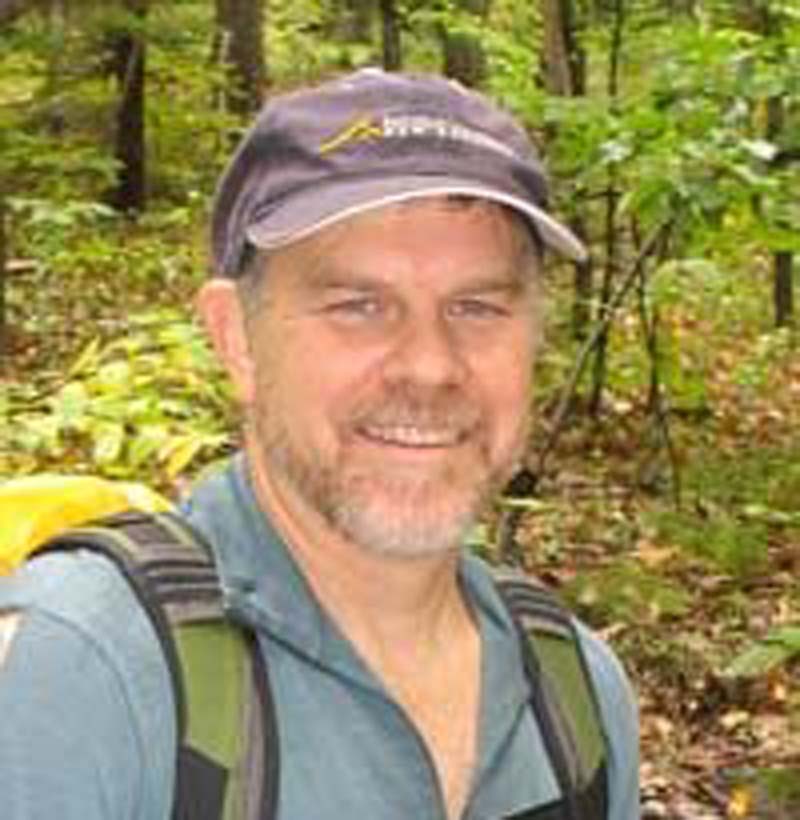
As small as our 80 acres of land is at Glover’s Ledge, the work we have done and will continue to do there impacts our students, communities and the broader world over the next half century. Our climate emergency is significantly impacting our world in negative ways, requiring us to move away from fossil fuels for the survival of all species on the planet. Our 146kw solar array installed at Glover’s Ledge in 2021 has an estimated 40-year life and will offset 193,720 pounds of CO2 emissions annually. That is the equivalent of planting 2,100 new trees. Additionally, funds generated from selling power back into the grid will support student scholarships. The forests we manage on the other 76 acres will continue to sequester and store carbon. The walking trails we maintain, including the half-mile ADA trail installed in 2022, will provide students and the community opportunities to learn about and connect with nature in a way that supports positive physical and mental health.
Peter Palmiotto is the chair of the Department of Environmental Studies and the director of University Forests, which includes overseeing Glover’s Ledge, the forest that Antioch has stewarded since 2014.
Rowland Russell
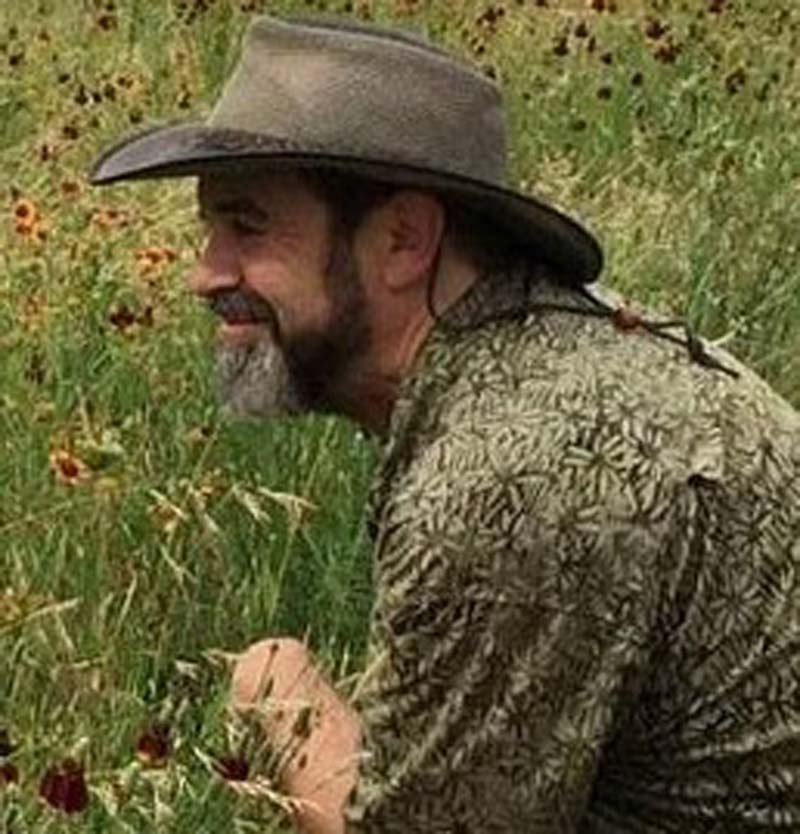
Over my 25 years living in Keene, New Hampshire, I have witnessed firsthand the many positives that Environmental Studies graduates have brought to our place and community via land conservation, ecological restoration, environmental education, food sovereignty work, and clean energy development. Arguably, climate change is the single greatest challenge facing the planet today and into the future. On every level, this work is at the heart of Antioch’s mission “to advance social, racial, economic, and environmental justice.” More than ever, the world needs countless individuals steeped in Antioch’s Environmental Studies skills and values to become change agents in landscapes and communities across the globe.
Rowland Russell ‘08 (New England, PhD) is the founder of Communitas Consulting and adjunct faculty in the Environmental Studies Department.
Francis Tuokuu
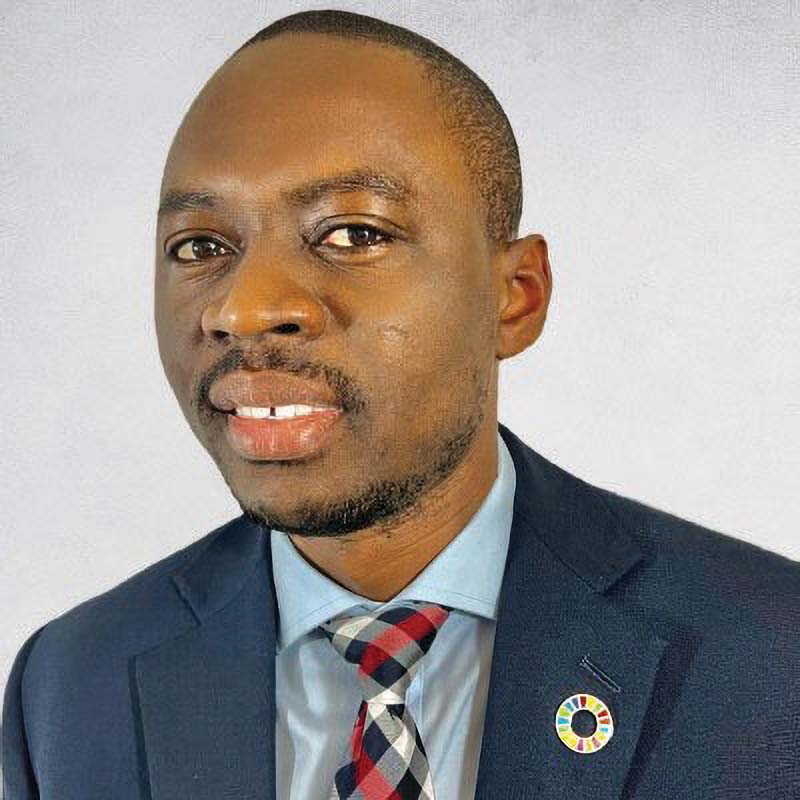
Antioch University is distinguished by its steadfast dedication and commitment to addressing urgent global, environmental, and social justice issues. As a result, graduates of this esteemed institution are exceptionally well-prepared, possessing expertise in critical areas including biodiversity and conservation, clean energy, environmental policy, and environmental and social justice. These areas of specialization hold tremendous significance in the context of our contemporary global environmental challenges, especially in light of the looming threat of climate change, which endangers both food security and the overall well-being of our planet.
Francis Xavier D. Tuokuu ‘19 (New England, PhD in Environmental Studies) is Senior Advisor for Environmental Sustainability and Safeguards at Mercy Corps. Read our Common Thread profile of Tuokuu.
Tom Wessels
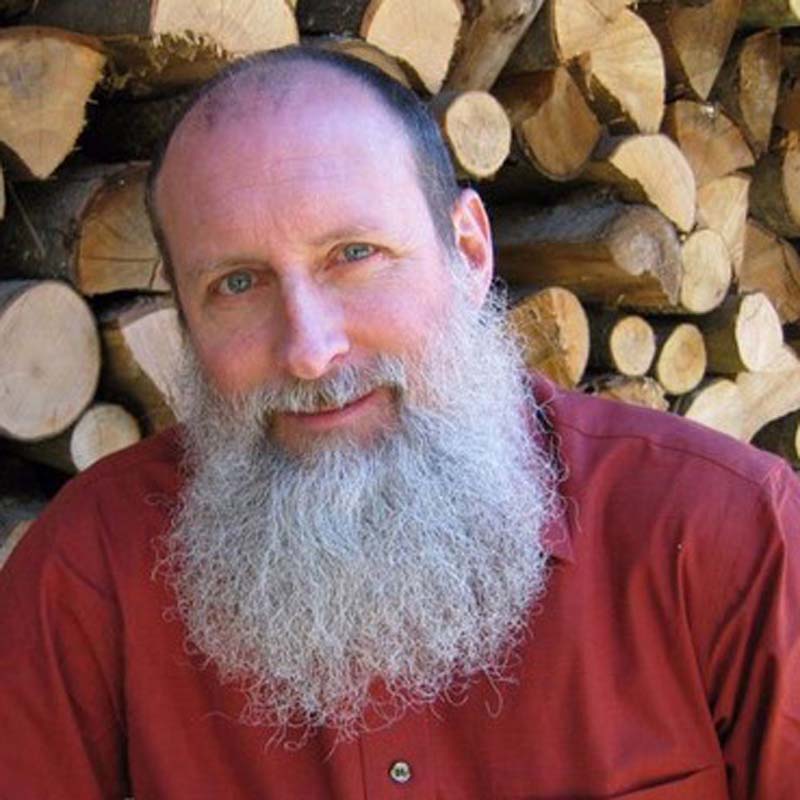
What struck me the most, during my 38 years in Antioch University’s Department of Environmental Studies, was the dynamic learning community in which I found myself engaged. What made this even more striking was that this was a department in a graduate school! To this day, I feel so fortunate to have had this incredible professional experience. As I look to the future, it has become clear to me that the pressing problems we are facing will mostly be solved by the collective work of citizens within their communities. Our large governmental and economic institutions no longer have the capacity for tackling the serious issues that need to be aggressively dealt with. This is where I see Antioch’s Department of Environmental Studies playing an important role: by training graduate students to be highly skilled agents of change to help their communities become ever more selfreliant, resilient, and inclusive, where all community members are looking after each other’s well being. Large-scale societal change is never initiated from the top down, it always bubbles up from the collective grassroots work of individuals. Antioch environmental graduates are, and will be, effectively trained to do just that.
Tom Wessels is faculty emeritus in the School of Environmental Studies and Sustainability, the namesake of the Tom Wessels Environmental Scholarship, and the author of books including Reading the Forested Landscape and Granite, Fire, and Fog: The Natural and Cultural History of Acadia.
Artistic Vision
Alistair McCartney
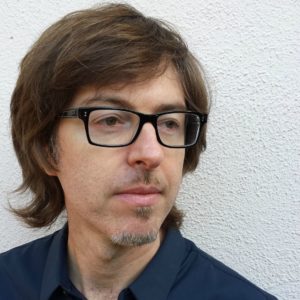
I like to think that Antioch is in a perpetual state of becoming, alert to the ever-shifting grounds of art and culture, of aesthetic and social context. We can’t predict what is to come, so our task is to create a malleable pedagogical space for our wondrous students and future shining alumni, to prepare them to be simultaneously attuned to the social, public sphere of literary citizenship and the private, creative sphere of writing, as well as the ceaseless intersection between the two.
Alistair McCartney ‘01 (Los Angeles, MFA) is teaching faculty in our MFA Program and author of several works of fiction, most recently The Disintegrations.
Tomoyo Kawano
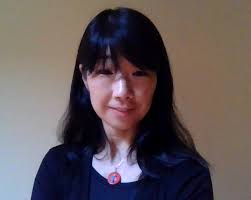
A trained dance/movement therapist listens and responds to the lived knowledge that is embedded in bodies. Nonverbal means of expression can be especially beneficial to communicate that which cannot be expressed in words. Through recognizing the somatic cues and signatures of power, privilege, and oppression, we can begin to create safer spaces and empower individuals to be their authentic selves. Antioch alumni have been integrating dance/movement therapy into mainstream mental health care through their work with the VA, disaster relief, and neurorehabilitation, among other settings. In this way we are responding to the challenges of individual humans and the broader challenges facing humanity.
Tomoyo Kawano is Associate Professor in the School of Counseling, Psychology, and Therapy and Program Director of the MA in Dance/Movement Therapy. Read our profile of Kawano on Common Thread.
Lisa Freeman
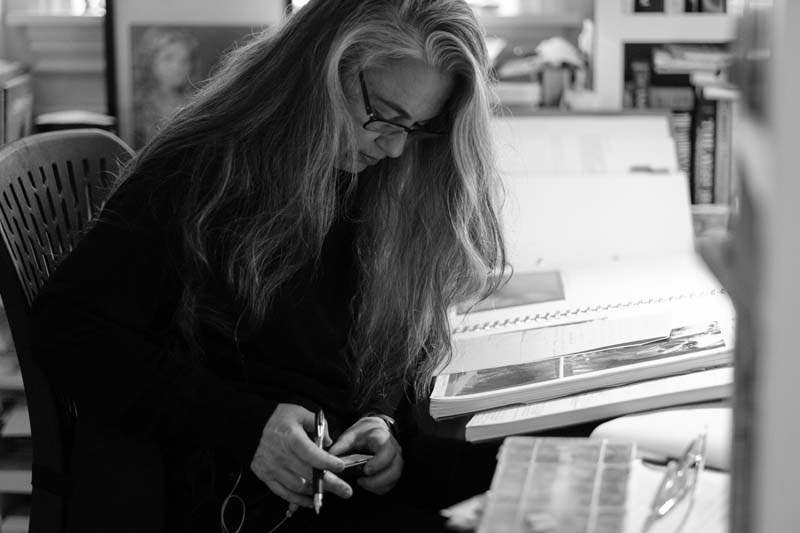
When I sit down to write , I do not think of the future, stew in concerns of division, or hope to bridge people back together. I do not wonder if some AI will duplicate my voice to such precision that I no longer exist. I do not question my queer consciousness, integrity, or devotion to the craft of writing. I simply begin, put the pen to paper, and follow the story. Writing is the net that catches me. It might sound odd to remember Antioch, a prestigious institution, as a circus. But for me, the memories of its joy, the music of its endless conversations, and the thrill of its ride as I received a BA and MFA while raising two young children still makes me wonder, How the heck did I do that? This is what I now hold dearest when I speak of Antioch. Welcome to the circus.
Lisa Freeman ʼ02, ʼ04 (Los Angeles; BA, MFA) is an actor and writer. Her latest novels are Honey Girl and Riptide Summer.
Susie J Erenrich
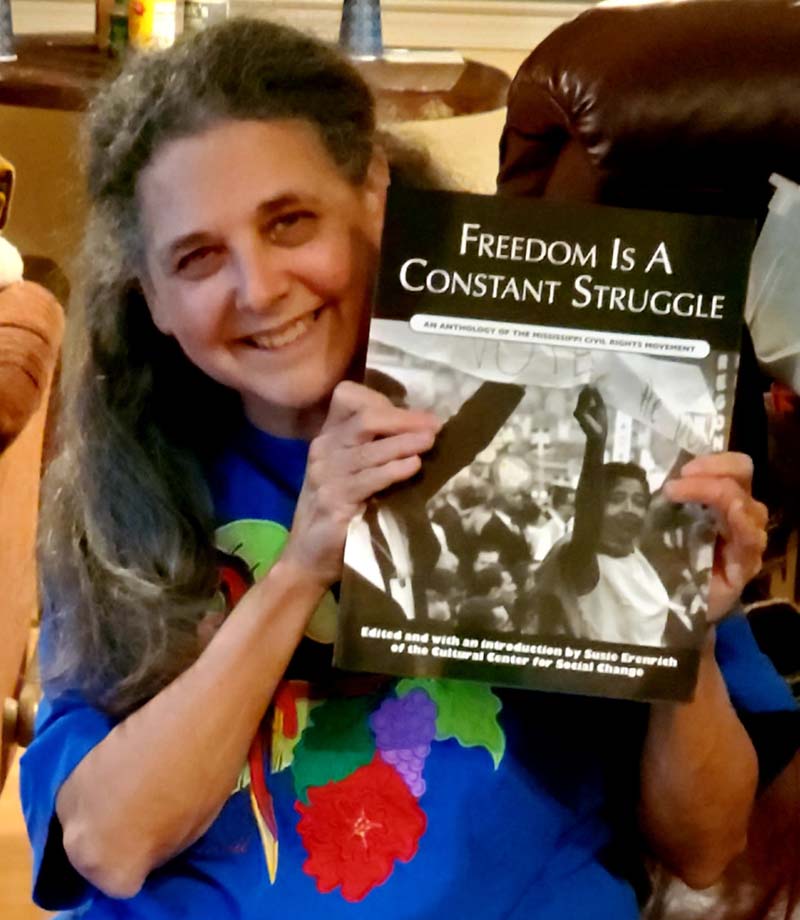
As the co-editor of many books about the confluence of art and social change, I have witnessed how artists throughout history have always been at the forefront of movements of protest, resistance, and liberation. Their efforts kindled a fire, aroused the imagination, and rallied the troops culminating in real transformational change. No matter what form their cultural activism took, these movers and shakers have been viewed as authentic, reliable, and trustworthy shepherds and allies for the betterment of society.
Susan “Susie” J. Erenrich ’10 (GSLC, PhD in Leadership and Change) is a social movement history documentarian. Her most recent book is A Grassroots Leadership & Arts for Social Change Primer for Educators, Organizers, Activists, & Rabble-Rousers.
Lise Quintana
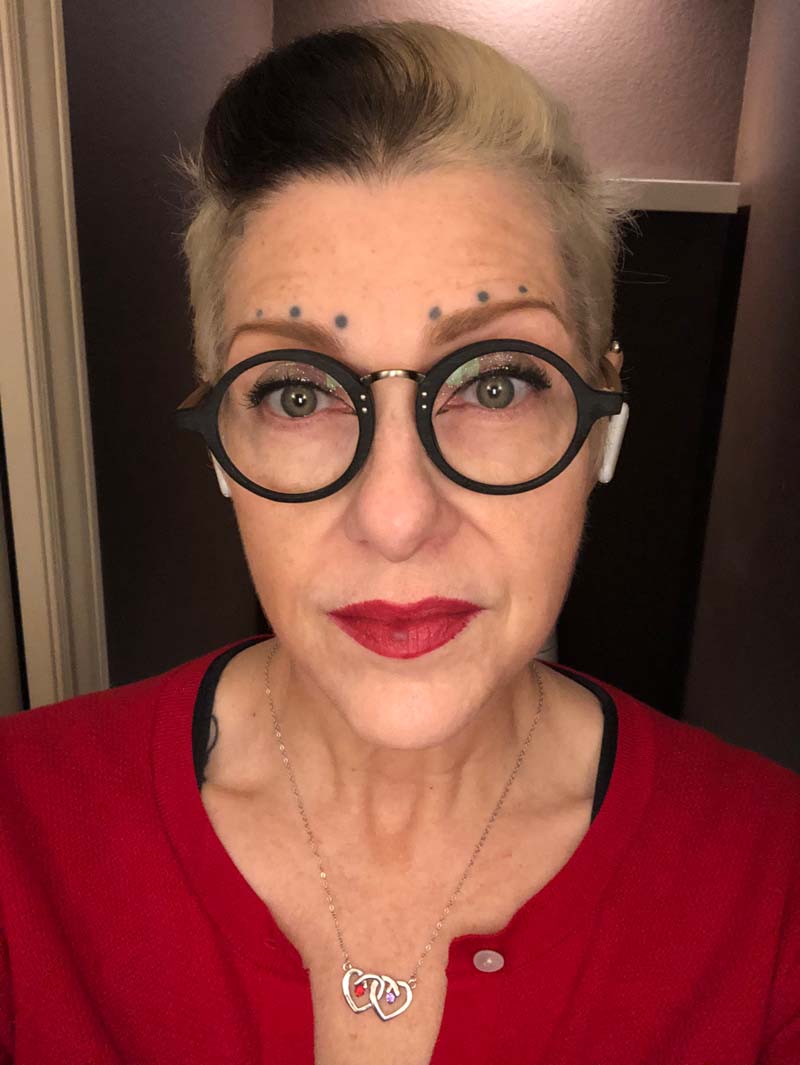
Antioch College was founded by Horace Mann, and his humanitarian principles are still at the heart of Antioch’s mission. Yes, we all recognize that well-written prose and beautiful poetry are never going to convince some people to change their minds, but fighting for a world where art and artists are valued is still important. Winston Churchill said: “Words are the only things that last forever. The most tremendous monuments or prodigies of engineering crumble under the hand of Time… but words spoken two or three thousand years ago remain with us now, not as mere relics of the past, but with all their pristine vital force.” This is the legacy of Antioch—to bear witness to the world we live in, and, by pointing out injustice and exploring new ways of interacting, to make the world a better place for the future readers of our words.
Lise Quintana ʼ13 (Los Angeles, MFA in Creative Writing) is an award-winning writer, publisher, and software developer. She is publisher at Zoetic Press and Editor in Chief of NonBinary Review.
Bonnie Hearn Hill
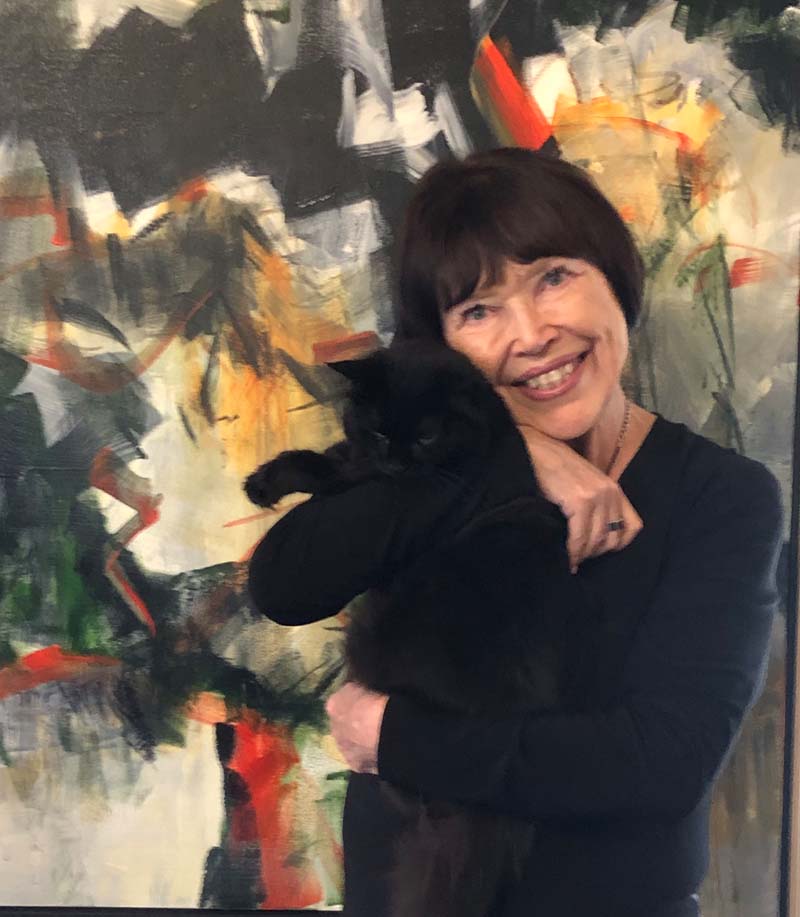
Antioch—embodied in the people I’ve met, the writing I’ve discovered, and the values that mirror and enhance my own—has changed my writing and my life. Knowing that this year’s graduates are taking these values of inclusion and common decency into their personal and professional lives gives me hope for the future. Our earth is being scarred and depleted both literally and metaphorically. Challenges include politicized climate destruction, and at the heart of it, the “isms”—sexism, racism, ableism, and all the others. At Antioch, there are no isms, and that is a beginning. If our institution and our alumni bring only that practice, that belief, into the world, it will be a powerful force.
Bonnie Hearn Hill ‘21, ’23 (Online, UGS; Los Angeles, MFA) is the author of twenty books including her recent poetry collection, Forgotten California.
Toni Ann Johnson
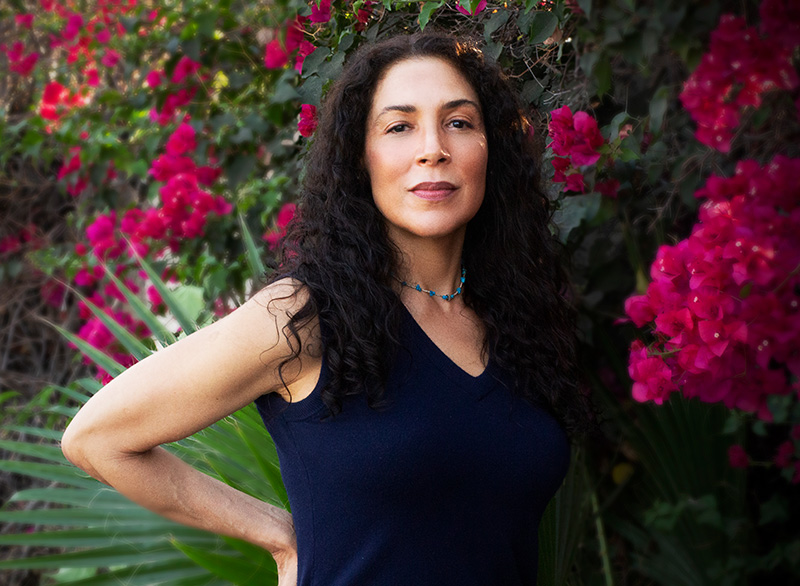
We’re already facing a potentially monumental problem with AI being used to mimic writers’ work. You can give ChatGPT a prompt, for example: Give me a paragraph about trees written in Southern Gothic style. It will spit back something quite well-written. What’s infuriating and frightening is that the writer or writers it copied didn’t give permission for their work to be used in that manner. Perhaps the program used work in the public domain, but it is not stopping there. I have friends whose books are currently being used to train AI. Despite their copyright ownership, the use of these authors’ work without their permission is happening. Antioch students and alumni might consider supporting efforts to push back against this theft of intellectual property. Perhaps some of us will write stories in protest. Writers spend decades cultivating their voices and style, and it’s infuriating that the art we’ve struggled to make can be fed to AI and used indiscriminately. That said, let’s keep writing in our distinct ways and celebrate authenticity. Hopefully humans will continue to prefer the real thing over ersatz, mashup replicas of literature.
Toni Ann Johnson ‘08 (Los Angeles, MFA) is an award-winning novelist, screenwriter, and playwright. Her latest book is Light Skin Gone to Waste, the winner of the 2021 Flannery O’Connor Award for Short Fiction.
Natashia Deón
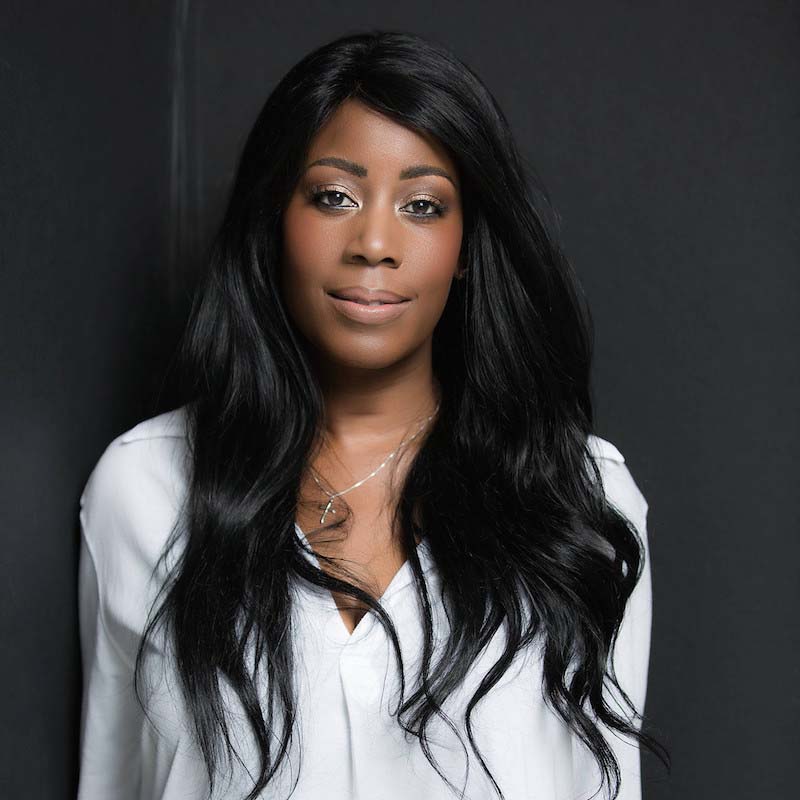
A major challenge we need to address is aging alone and unsupported as a creative. Let me explain my alarm: Millennials are hitting middle age and Baby Boomers have long since crossed that line, where physical decline and biological changes that affect quality of life begin kicking in. Our literary world (and beyond) is not ready for this. This area of creative life is often overlooked. We must better prepare for what’s about to hit us in epic numbers. I think Antiochians need to advocate for retirement pay for writers and teachers—to take care of creatives for as long as we’re lucky enough to have them.
Natashia Deón teaches in the Antioch MFA Program. She is the author of The Perishing and Grace and is an activist and practicing criminal attorney.
Bringing Education Forward
Ken Pienkos
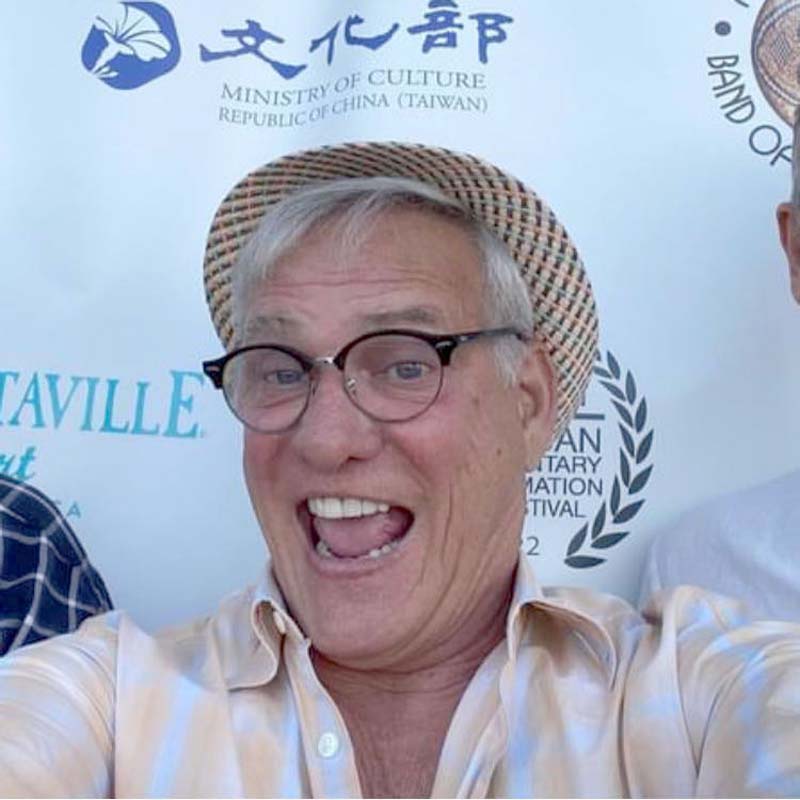
From my work in Continuing Education I am in a position to see how former, current, and future students are engaging with Antioch University in new ways for professional development, personal enrichment, and community engagement. As I’ve seen over 6,000 unique learners engage in continuing education since we launched in 2019, I’m inspired by how these individuals are addressing gaps in their educations. From my desk, facing my garden, I see the lifelong learners carrying on the legacy of Antioch University’s mission of promoting social, racial, environmental, and economic justice.
Ken Pienkos ‘14 (Los Angeles, MFA) is the Program and Operations Manager for Continuing Education.
Torin Finser
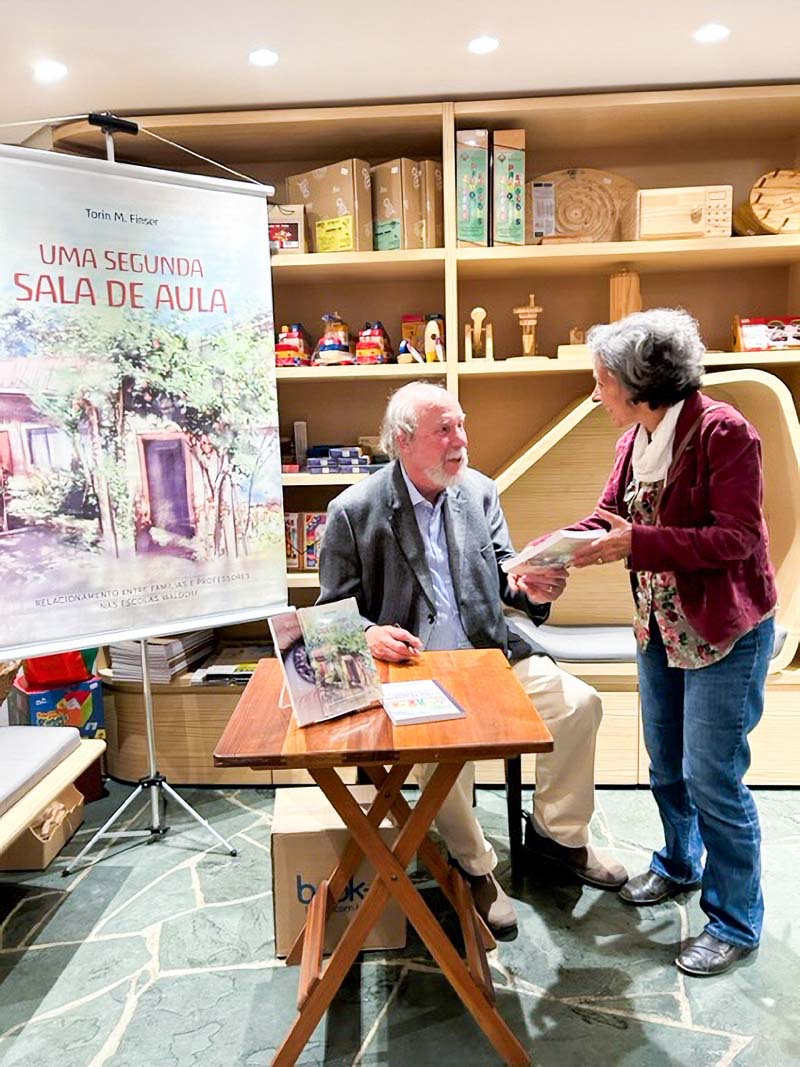
Since 1982 Antioch’s Waldorf Program has been sending teachers out into schools across the continent and even abroad. Many apply their new knowledge through long internships/practica, and then return to our Antioch classrooms having learned from the best teachers of all: the children! Schools play a vital role in helping to shape a future worthy of these children. With 1,200 Waldorf schools in diverse countries all over the world, we have the chance to absorb best practices and to learn to see through the eyes of others.
Torin Finser is core faculty in the School of Education and Director of Waldorf Programs. He is the author of fourteen books and the founder of the Center for Anthroposophy.
Laura Thomas
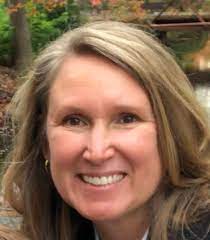
When I was a beginning teacher, just starting to recognize how big the issues were and how much lay before us as a profession, I asked a colleague what to do. He responded with this story: “The student asked the teacher, ‘Teacher, I am very discouraged. What should I do?’ The teacher replied, ‘Encourage others.’” I’m still so aware that the need is great and our capacities are so small—how can one person ever do enough? It’s helpful for me to think of us as a choir, sustaining a single note for a long period of time. An individual singer could never hold the tone long enough, but when we take turns breathing—renewing ourselves—we can start singing again and allow others a chance to do the same. I think this is the work of our Antioch faculty, students, and alumni: to support our peers while also modeling renewal, both by exploring new ideas and by modeling what it looks like to rest when necessary.
Laura Thomas ’01 (New England, MEd) is core faculty in the School of Education, director of the Experienced Educators Program on Antioch’s New England campus, and a contributing editor to Edutopia.
Sean Creighton
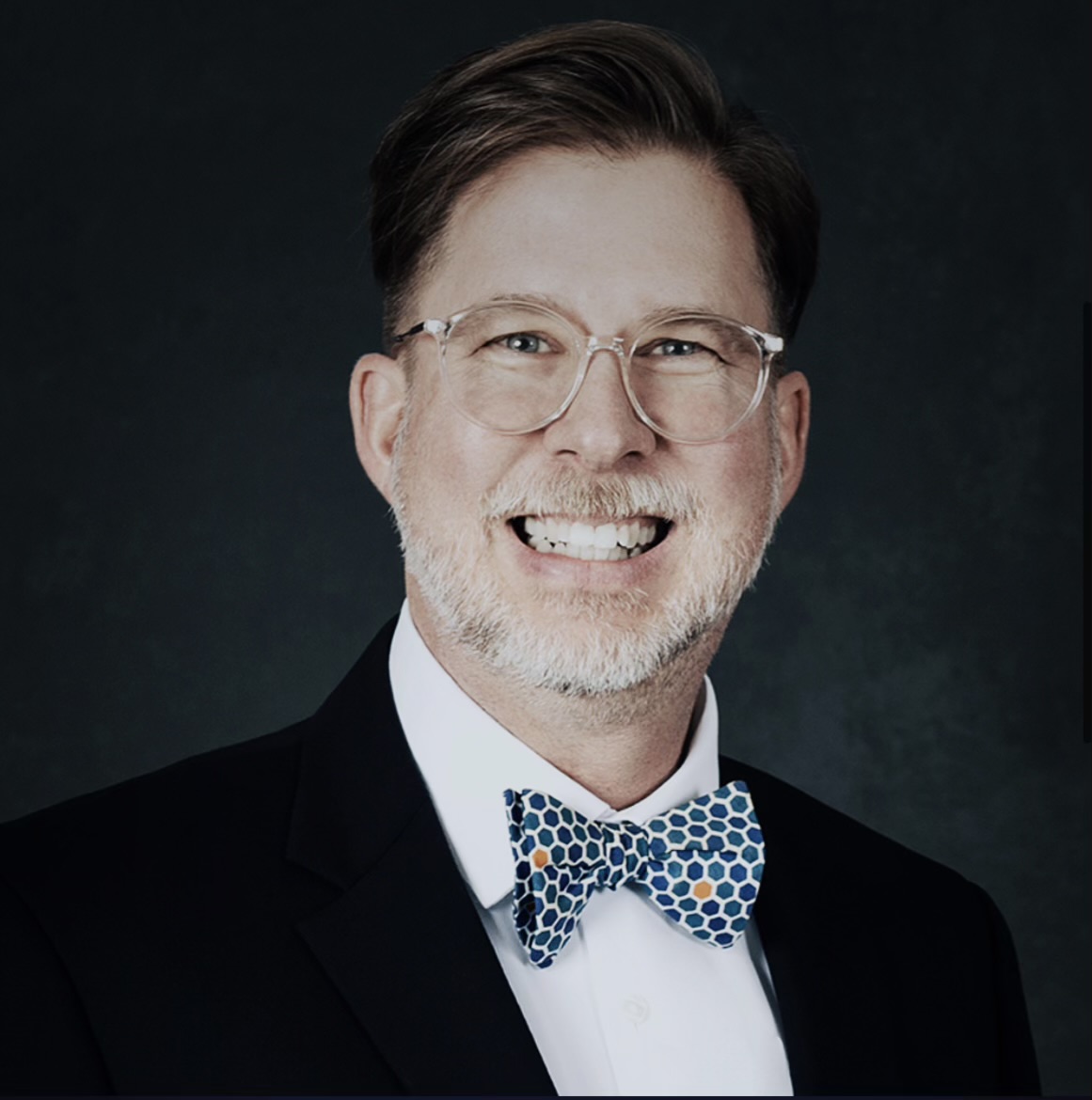
Antioch University has long been at the forefront of shaping scholar-practitioners who go on to lead and innovate across diverse industries, driving positive change for both humanity and our environment. Education, undoubtedly, serves as the most potent avenue for individuals to enhance their wellbeing and contribute to societal progress. Consequently, Antioch alumni in the field of education and higher learning wield a pivotal influence in shaping individuals and communities today and for generations to come. Further, the commitment to sustainability in higher education embodies our pledge to future generations, ensuring that they too will have the opportunity to embark on the transformative journey of an Antioch University education. As Antioch collaboratively forges new university initiatives, this promise will manifest in unprecedented and influential ways, echoing across our nation and beyond.
Sean Creighton ‘06 (GSLC, PhD in Leadership and Change) is the president of New American Colleges and Universities, the president of the Washington Internship Institute, and the president emeritus of the Strategic Ohio Council for Higher Education. Between 2000 and 2003 he was the Executive Director, External Relations for Antioch University Midwest.

Jasper Nighthawk
Jasper Nighthawk ’19 (Antioch Los Angeles, MFA) is Antioch University’s Manager of Communications. He hosts the award-winning Seed Field Podcast and co-edits Common Thread and the Antioch Alumni Magazine. In his free time, Jasper is a writer and publishes an email newsletter called Lightplay. He lives in Los Angeles and on the Mendocino Coast with his partner, child, and cat.
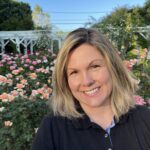
Carrie Lynn Hawthorne
Carrie Lynn Hawthorne is a writer and mother from Los Angeles. Her work has appeared in Cultural Daily, The Hennepin Review, The Sunlight Press, and elsewhere. She is an MFA candidate at Antioch University Los Angeles. For links to her recent publications, visit carrielynnhawthorne.com.

